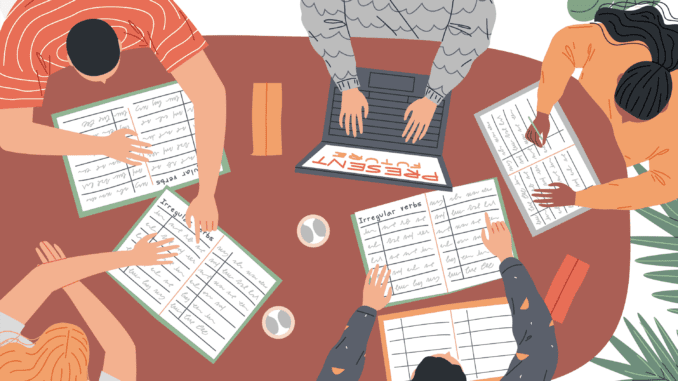
Continuing education is important for senior citizens for several reasons:
- Mental Stimulation and Cognitive Health: Learning new things can keep the brain active and engaged, which is crucial for maintaining cognitive health. Studies have shown that mental stimulation can delay or slow the progression of age-related cognitive decline, including diseases like Alzheimer’s.
- Social Interaction: Educational classes provide a social outlet, allowing seniors to interact with peers, make new friends, and feel part of a community. This socialization is essential for mental health, reducing feelings of isolation and depression.
- Personal Fulfillment and Sense of Purpose: Engaging in education can give seniors a sense of accomplishment and purpose. Learning new skills or deepening knowledge in a particular area can be highly satisfying and contribute to a positive self-image.
- Keeping Up with Technology: In an increasingly digital world, continuing education can help seniors stay up-to-date with technological advances, making it easier to communicate with family, manage personal affairs, and access information.
- Physical Health: Some educational programs for seniors incorporate physical activity, which is important for maintaining strength, flexibility, and overall health.
- Adapting to Life Changes: Education can help seniors adjust to life changes, such as retirement or the loss of a spouse. It provides structure, a sense of routine, and opportunities to develop new interests.
- Lifelong Learning and Curiosity: Continuing education fosters a lifelong love of learning. It encourages curiosity and exploration, which can be deeply enriching at any age.
The following are a few examples of learning opportunities throughout the state of Arizona.
- Osher Lifelong Learning Institute (OLLI) at the University of Arizona or Arizona State University. These programs offer hundreds of intellectually stimulating courses, field trips, and social activities for adults 50 and older. You can choose from a variety of topics, such as arts, humanities, science, technology, health, and more. You can also join online classes and events from the comfort of your home. To learn more, visit https://olli.arizona.edu/page/olli-ua-class-catalogs
- Continuing and Professional Education at the University of Arizona. This program offers professional development, certifications, corporate training and other non-credit opportunities to achieve your personal and career goals. You can explore courses in areas such as business, education, engineering, health, languages, and more. To learn more, visit https://ce.arizona.edu/] .
- Lifelong Learning at the Arizona Science Center. This program provides engaging and interactive experiences for adults who want to learn more about science, technology, engineering, and math (STEM). You can participate in lectures, workshops, tours, and special events covering astronomy, biology, chemistry, physics, and more. To learn more, visit https://www.azscience.org/events-programs/.
- Senior Citizen Tuition Rate at Maricopa Community College. This program allows students ages 65 and older who are residents of Maricopa County to take classes for credit at 50% of the full tuition cost. You can register for in-person, online or hybrid classes in any subject. To learn more, visit https://www.maricopa.edu/.
- Humanities Seminars Program at the University of Arizona. This program offers a wide range of classes, from astronomy to archeology and from Shakespeare to film noir. There are no examinations, but reading assignments may be given and discussion is encouraged. To learn more, visit https://hsp.arizona.edu/.
- Living Healthy With Arthritis at the University of Arizona. This program focuses on healthy lifestyle education and patient empowerment while living with arthritis. The program offers monthly lectures that are free and open to the public, featuring medical and health professionals from the University of Arizona. To learn more, visit https://arthritis.arizona.edu/healthy-living/tucson-lecture-series.
- Behavioral Sleep Medicine Seminar at the University of Arizona. This program is a weekly lecture series hosted by the Department of Psychiatry. The lectures cover topics such as sleep disorders, insomnia, circadian rhythms, and more. The seminar is free to attend, and each lecture is eligible for 1 CME credit. To learn more, visit https://www.sleephealthresearch.com/seminar.html.
- Community Classroom at the University of Arizona. This program brings renowned professors and community scholars together with lifelong learners and professionals in the Tucson community. The program offers full courses where you study along with UArizona students, as well as shorter cultural immersion experiences. To learn more, visit https://communityclassroom.arizona.edu/.
- Arizona Science Lecture Series at the University of Arizona. This program is an annual series of lectures that feature distinguished faculty from the College of Science. The lectures cover topics such as water, climate change, evolution, and more. The lectures are free and open to the public, and you can watch them online. To learn more, visit https://science.arizona.edu/community-engagement/public/arizona-science-lecture-series.
- Lifelong Learning at Innovations in Healthy Aging. This program offers classes and events at the University of Arizona that are tailor-made for community members who want to keep their brain active and engaged. The program covers topics such as aging, health, wellness, and more. To learn more, visit https://healthyaging.arizona.edu/.
In summary, continuing education for senior citizens is not just about acquiring new knowledge; it’s about enhancing the overall quality of life, staying mentally and physically active, and continuing to grow and engage with the world.
To find additional opportunities, go to your web browser and search for Senior Learning Programs Arizona, Senior Learning Arizona, or classes for seniors. Many of these classes are available both in person and virtually.
